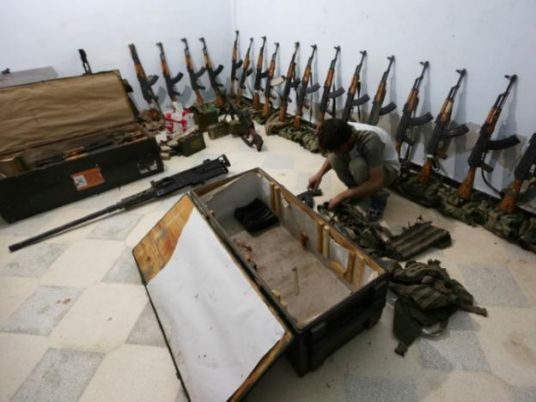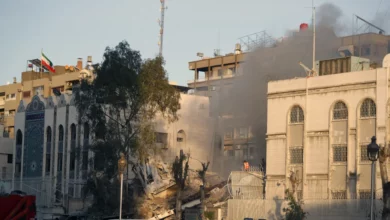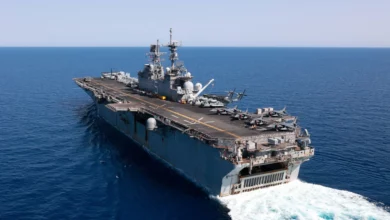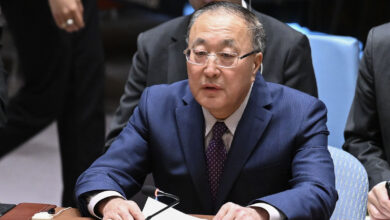
Syrian government forces are trying to split opposition-held eastern Aleppo in two in a fierce ground and air assault that is taking a heavy toll on besieged civilians and rebel fighters who are battling hard to stop them, a rebel commander said.
Abu Abdelrahman Nour, Aleppo commander of the Jabha Shamiya, one of the biggest groups fighting against President Bashar al-Assad in northern Syria, called for more help from countries such as France and Turkey, saying it would be a "catastrophe" if the government forces managed to bisect eastern Aleppo.
Aleppo, Syria's biggest city before the start of a civil war that has killed hundreds of thousands of people, is already divided into the government-held west and rebel-held east, where U.N. officials say at least 250,000 people are under siege.
Dividing eastern Aleppo would expose rebel fighters to attack on new fronts and could hasten what would be a major victory for Assad in the rebels' most important urban stronghold after five years of fighting.
In the latest fighting, the pro-government forces, identified by the rebels mainly as Shi'ite militias, have sought to advance into an area of northeastern Aleppo, Nour said. Heavy bombardment of civilian areas has also resumed.
"The regime is using heavy, systematic bombardment in the areas where it is trying to advance. This is causing many injuries in the ranks of the revolutionaries," he said late on Wednesday via Skype from Aleppo.
"For roughly five days the intensity of the attack and clashes in the northeast area has increased, and this threatens the entire eastern region."
The aim is "to besiege Aleppo twice, and split it into two areas, and this will be a catastrophe if it happens", Nour said, explaining that the pro-government forces would then able to open new fronts in the battle for Aleppo.
This would further stretch the outgunned rebel fighters after what Nour called "one of the hardest periods" Aleppo had faced.
Parts of the city have been largely reduced to rubble and residents are short of food, medicine and fuel. Nour said flour was being mixed with other foods such as rice and cracked wheat to eke out remaining supplies.
Despite this, Nour said rebel morale was high.
"God willing it will not be easy for the regime. We have excellent capabilities and are defending well," he said.
"TOTAL WAR"
The government, backed by Russian air power and Shi'ite militias from Iran, Iraq and Lebanon, has tightened its grip on eastern Aleppo this year, gradually encircling it before launching the new assault in September.
The Syrian Observatory for Human Rights, a Britain-based organization that reports on the war, says pro-Assad forces are making "clear advances" in eastern Aleppo, including the belt of territory that could split the rebel-held east in two.
Asked about the government's strategy, a Syrian military source said "the army had a number of plans for the eastern districts". The source said "the matter will be settled sooner or later, and it won't be later".
Western states have condemned the Russian-backed campaign that has killed hundreds of people since September. Hospitals and other civilian infrastructure have been hit, and all of east Aleppo's hospitals were declared out of action last week.
France accused the Syrian government and its allies on Wednesday of using political uncertainty in the United States to launch "total war" against rebel-held areas.
Syrian rebels in besieged east Aleppo have agreed to a U.N. plan for aid delivery and medical evacuations, but the United Nations is awaiting a green light from Russia and the Syrian government, humanitarian adviser Jan Egeland said.
U.S. President-elect Donald Trump has suggested he may overhaul U.S. policy in Syria, questioning the policy of supporting moderate rebels fighting Assad and suggesting he may cooperate with Russia in the fight against Islamic State.
The Jabha Shamiya, which is known in English as the Levant Front, has received support from states that oppose Assad, such as Turkey. But the backing has fallen short of what the rebels say they need to fight the better armed government side.
"We were frankly counting on the friendly states — Turkey, France, others — to offer us assistance much greater than this, on the military or humanitarian level," Nour said.
Nour said assaults on the southern periphery of the rebel-held areas of Aleppo had died down, but "on the northeastern front, the regime attempts are of increasing ferocity".




